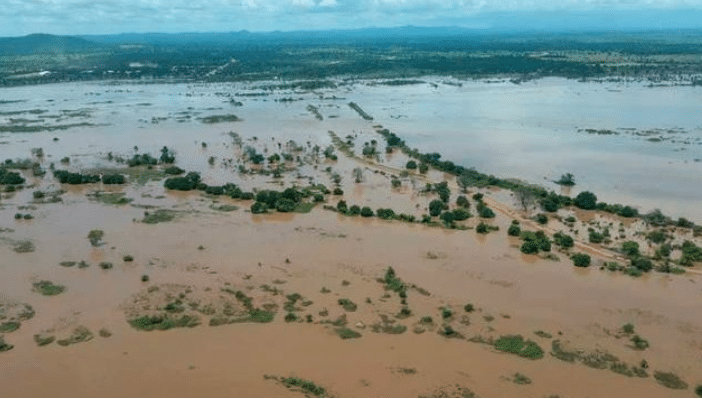With increasing frequency, rural poor communities in Malawi are subject to extreme flooding that destroys crops, displaces families and claims lives.
Vulnerable households across the southern African country have also endured extreme droughts and destructive pest invasions for which they are ill-prepared.
Just last year, thousands of farming families lost crops and homes to torrential flooding in Karonga District in the north of Malawi, while in 2015 several hundred people died when rainfall caused the country’s Shire River in the south to burst its banks.
Measures that can help local areas to cope better with these extreme weather events are becoming increasing important in rural Malawi. Self Help Africa recently held training events in both Blantyre and Mzuzu, to support communities to be better prepared for such crises.
Fifty-five representatives of community-based District Civil Protection Committees (DCPCs) joined staff from local partners on the courses, which focused on activities that help to reduce disaster risks, and support the better management of local wetlands, flood plains and watersheds. Following the course activities, participants were carrying out district risk assessments and existing early warning plans, and were also producing reports and recommendations on work that was required to rehabilitate local watersheds and vulnerable areas, said Self Help Africa Resilience advisor Tchaka Kamanga.
The recent training was carried out as a part of ‘BETTER’, an EU-backed project that is seeking to increase resilience, income and food security for 402,000 smallholder farmers in ten districts in Malawi – Karonga, Chitipa, Nkhatabay, Mzimba, Kasungu, Salima, Nkhotakota, Thyolo, Mulanje and Chiradzulu. BETTER is being implemented by Self Help Africa in collaboration with Action Aid Malawi (AAM), Adventist Development Relief Agency (ADRA), Plan International UK (Plan) and Evangelical Association of Malawi (EAM).


